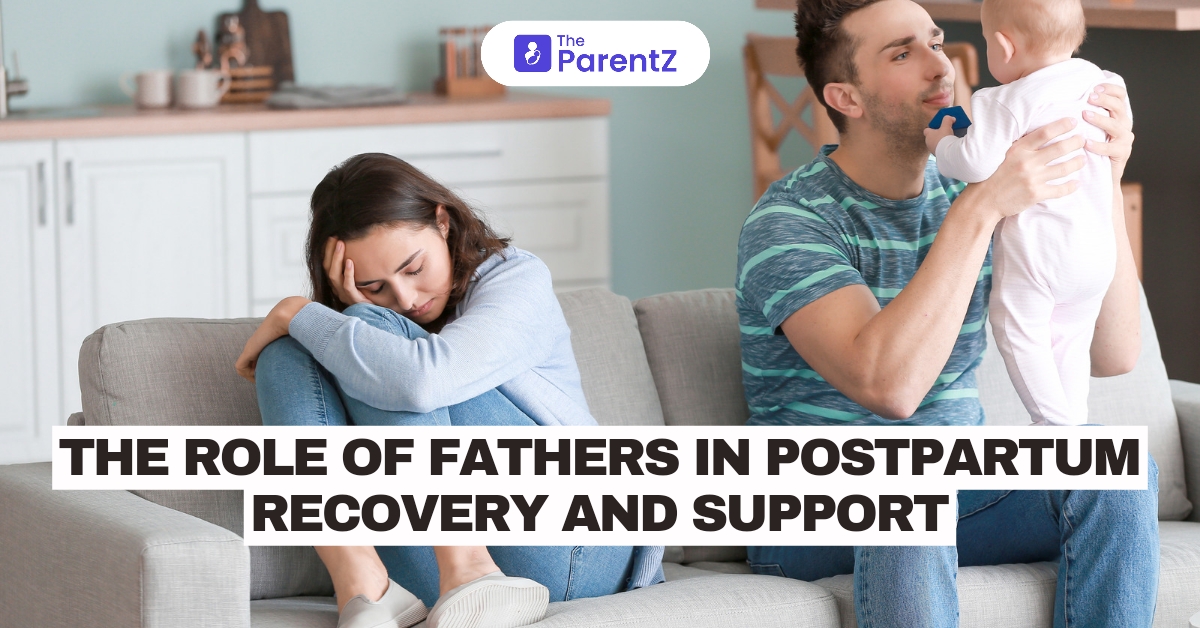The postpartum period is a critical time for new mothers as they recover from childbirth and adjust to the demands of caring for a newborn. During this time, the support of a partner can be invaluable. Fathers play a crucial role in postpartum recovery, offering emotional, physical, and practical support that can significantly impact the well-being of both the mother and the baby. This article explores the multifaceted role of fathers in postpartum recovery and support, highlighting the importance of their involvement and providing practical tips for new dads.
Emotional Support
Understanding Emotional Changes
The postpartum period can be an emotional rollercoaster for new mothers. Hormonal fluctuations, sleep deprivation, and the demands of caring for a newborn can lead to feelings of anxiety, sadness, and overwhelm. Fathers can provide essential emotional support by being attentive, understanding, and empathetic.
Active Listening
One of the most important ways fathers can offer emotional support is through active listening. This involves giving the mother undivided attention, acknowledging her feelings, and validating her experiences without judgment. By simply being present and listening, fathers can help alleviate some of the emotional burden that new mothers often feel.
Encouragement and Reassurance
New mothers may experience self-doubt and worry about their ability to care for their baby. Fathers can offer encouragement and reassurance, reminding their partners of their strengths and capabilities. Positive affirmations and expressing confidence in the mother’s abilities can boost her self-esteem and help her feel more secure in her new role.
Physical Support
Helping with Physical Recovery
Childbirth is a physically demanding process, and the postpartum period involves significant physical recovery. Fathers can assist by helping their partners with tasks that may be difficult during this time, such as lifting heavy objects, preparing meals, and managing household chores.
Encouraging Rest
Adequate rest is crucial for postpartum recovery, but it can be challenging to achieve with a newborn. Fathers can support their partners by taking over baby care duties, especially during nighttime feedings and diaper changes, to allow the mother to get much-needed rest. Sharing these responsibilities can also strengthen the bond between father and baby.
Attending Medical Appointments
Fathers can play a supportive role by accompanying their partners to postpartum medical appointments. This not only provides emotional support but also helps fathers stay informed about the mother’s recovery progress and any potential concerns. Being involved in medical discussions ensures that both parents are on the same page regarding the mother’s health and well-being.
Practical Support
Involvement in Baby Care
Active involvement in baby care is one of the most practical ways fathers can support postpartum recovery. Changing diapers, feeding the baby, and soothing the newborn are all tasks that fathers can share. This not only lightens the mother’s load but also fosters a strong father-child bond.
Household Management
Managing household responsibilities can be overwhelming for new mothers, especially during the early postpartum period. Fathers can take charge of household chores, such as cleaning, laundry, and grocery shopping. By handling these tasks, fathers enable mothers to focus on recovery and bonding with the baby.
Meal Preparation
Proper nutrition is essential for postpartum recovery, but new mothers may not always have the time or energy to prepare healthy meals. Fathers can contribute by preparing nutritious meals and snacks, ensuring that the mother receives the sustenance she needs to recover and maintain her energy levels.
Emotional Bonding with the Baby
Skin-to-Skin Contact
Skin-to-skin contact, also known as kangaroo care, is beneficial for both the baby and the father. This practice involves holding the baby against the father’s bare chest, promoting bonding, regulating the baby’s body temperature, and providing comfort. Fathers who engage in skin-to-skin contact can establish a strong emotional connection with their newborns.
Playing and Interacting
Fathers can bond with their babies through play and interaction. Singing, talking, and making eye contact with the baby can stimulate the baby’s development and create a deep emotional bond. These interactions also give mothers a break, allowing them to rest or engage in self-care activities.
Encouraging Maternal Self-Care
Promoting Self-Care Activities
Self-care is vital for new mothers, but they may neglect their own needs while focusing on the baby. Fathers can encourage their partners to engage in self-care activities, such as taking a relaxing bath, going for a walk, or enjoying a hobby. By prioritizing the mother’s well-being, fathers contribute to her overall recovery and mental health.
Facilitating Time for Self-Care
To make self-care possible, fathers can take on baby care responsibilities, allowing mothers uninterrupted time for themselves. This can involve watching the baby while the mother naps, reads a book, or engages in any activity that helps her recharge.
Seeking Professional Support
Recognizing the Need for Help
Despite the best efforts of fathers, some new mothers may experience postpartum depression or other mental health challenges. Fathers play a crucial role in recognizing the signs of these conditions and encouraging their partners to seek professional help.
Participating in Therapy or Support Groups
Fathers can support their partners by participating in therapy or support groups designed for new parents. These resources provide a platform to discuss challenges, share experiences, and receive guidance from professionals. Joint participation in such activities can strengthen the couple’s relationship and provide valuable insights into managing postpartum challenges.
Conclusion
The role of fathers in postpartum recovery and support is multifaceted and essential. By providing emotional, physical, and practical support, fathers can significantly impact the well-being of new mothers and their babies. Active involvement in baby care, household management, and emotional support not only aids in the mother’s recovery but also fosters a strong family bond. Encouraging self-care and seeking professional help when needed are additional ways fathers can contribute to a positive postpartum experience. Ultimately, a supportive and involved father can make a profound difference in the journey of postpartum recovery, creating a nurturing environment for both mother and child.









Be the first one to comment on this story.